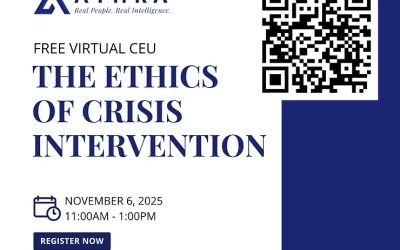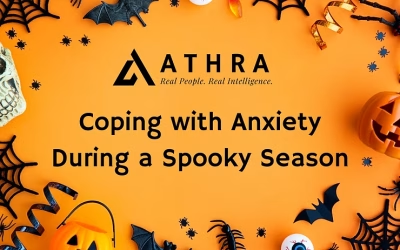According to The Anxiety and Depression Association of America, “Anxiety disorders are the most common mental illness in the U.S. affecting 40 million adults (19.1% of the population) age 18 and older every year.”
Anxiety is a common mental health condition that affects millions of people worldwide. It is characterized by feelings of worry, nervousness, or fear that can be mild or severe. While occasional anxiety is a normal part of life, chronic anxiety can interfere with daily activities and overall well-being. This article explores the causes, symptoms, and treatment options for anxiety.
Causes of Anxiety
Anxiety can be caused by a combination of genetic, environmental, psychological, and developmental factors. Some common causes include:
- Genetics: Anxiety disorders often run in families, suggesting a genetic predisposition.
- Brain Chemistry: Imbalances in neurotransmitters, such as serotonin and dopamine, can contribute to anxiety.
- Environmental Stressors: Traumatic events, significant life changes, or chronic stress can trigger anxiety.
- Medical Conditions: Certain medical conditions, such as thyroid disorders or heart disease, can cause anxiety symptoms.
- Substance Use: Alcohol, caffeine, and certain medications can exacerbate anxiety symptoms.
Symptoms of Anxiety
Anxiety manifests in various ways and can affect both the mind and body. Common symptoms include:
- Emotional Symptoms:
- Excessive worry or fear
- Feeling restless or on edge
- Irritability
- Difficulty concentrating
- Physical Symptoms:
- Rapid heartbeat
- Shortness of breath
- Sweating
- Trembling or shaking
- Fatigue
- Muscle tension
- Sleep disturbances
Types of Anxiety Disorders
There are several types of anxiety disorders, each with its own unique features:
- Generalized Anxiety Disorder (GAD): Characterized by chronic, excessive worry about various aspects of life, such as work, health, and relationships.
- Panic Disorder: Involves sudden, intense episodes of fear or discomfort, known as panic attacks, which can include symptoms like chest pain, heart palpitations, and dizziness.
- Social Anxiety Disorder: Intense fear of social situations where one might be judged, embarrassed, or scrutinized by others.
- Specific Phobias: Excessive fear of a specific object or situation, such as heights, spiders, or flying.
- Obsessive-Compulsive Disorder (OCD): Characterized by intrusive, unwanted thoughts (obsessions) and repetitive behaviors (compulsions) performed to alleviate anxiety.
- Post-Traumatic Stress Disorder (PTSD): Anxiety following exposure to a traumatic event, with symptoms including flashbacks, nightmares, and severe anxiety.
Treatment Options for Anxiety
Effective treatment for anxiety often involves a combination of therapy, medication, and lifestyle changes:
- Psychotherapy: Cognitive-behavioral therapy (CBT) is particularly effective for treating anxiety. It helps individuals identify and change negative thought patterns and behaviors that contribute to anxiety.
- Medication: Antidepressants, anti-anxiety medications, and beta-blockers can help manage symptoms. These should be prescribed and monitored by a healthcare professional.
- Lifestyle Changes:
- Regular Exercise: Physical activity can reduce stress and improve mood.
- Healthy Diet: Eating a balanced diet can support overall mental health.
- Sleep Hygiene: Establishing a regular sleep routine can improve anxiety symptoms.
- Mindfulness and Relaxation Techniques: Practices such as meditation, deep breathing, and yoga can help manage anxiety.
- Support Groups: Joining a support group can provide a sense of community and shared experiences, which can be comforting and empowering.
Coping Strategies
In addition to professional treatment, individuals with anxiety can benefit from various coping strategies:
- Stay Connected: Maintaining social connections with friends and family can provide emotional support.
- Set Realistic Goals: Break tasks into manageable steps to avoid feeling overwhelmed.
- Limit Caffeine and Alcohol: These substances can increase anxiety and interfere with sleep.
- Practice Self-Care: Engage in activities that promote relaxation and well-being, such as hobbies, reading, or taking a bath.
Conclusion
Anxiety is a manageable condition with the right approach. Understanding its causes and symptoms is the first step toward seeking effective treatment. If you or someone you know is struggling with anxiety, reach out to a healthcare professional for support and guidance. With appropriate treatment and coping strategies, individuals with anxiety can lead fulfilling and productive lives.











